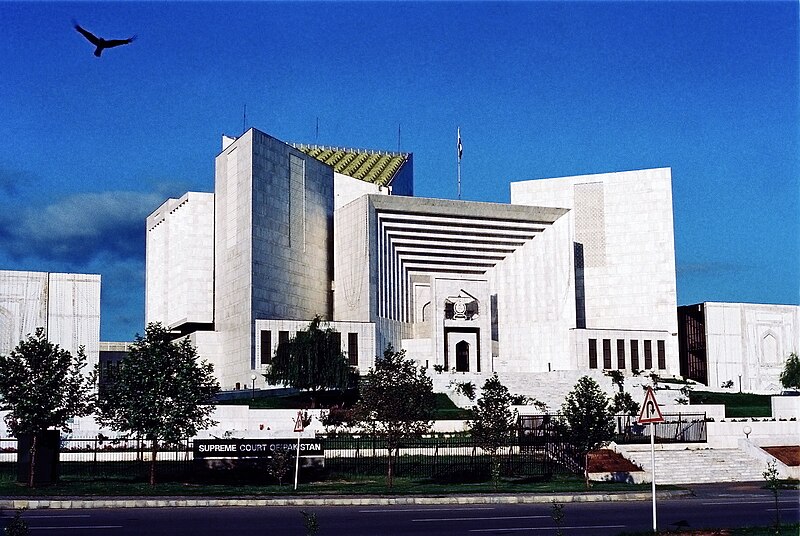- Web Desk
- Feb 24, 2026
Finalise a date for elections, and stick to it, SC tells ECP
-

- Web Desk
- Nov 02, 2023

ISLAMABAD: The Supreme Court witnessed a heated and pivotal hearing related to the scheduling of elections within a 90-day timeframe. The case, which has been a topic of significant public interest, featured arguments from prominent lawyers and raised crucial questions regarding fundamental rights and the President’s role in setting the election date.
Marked by a series of passionate exchanges, the proceedings began with Pakistan Tehreek-e-Insaf’s (PTI) lawyer Ali Zafar presenting his arguments before the court on holding elections within 90 days after dissolution of provincial assemblies.
Shah Mehmood Qureshi’s hospital transfer approved
Chief Justice Qazi Faez Isa, presiding over the case, noted that apparently, 90 days had already passed since the dissolution of the assemblies. Lawyer Ali Zafar, advocating for PTI’s position, emphasised the case’s significance in terms of fundamental rights. Supreme Court Bar lawyer Abid Zuberi was also present during the proceedings.
Sajeel Swati represented the Election Commission of Pakistan (ECP) in the court, while lawyer Farooq Naek was present on behalf of the Pakistan People’s Party (PPP), seeking to become a party in the case. The court ultimately granted the PPP the status of a party in the election case.
Lawyer Ali Zafar also read out the President’s letter, highlighting the dissolution of the assembly on August 9. A critical point of contention arose regarding the President’s authority to set the election date.
Justice Athar Minallah pointed out that the Ministry of Law had opined that the President could not unilaterally give the date, leading to a discussion about the ambiguity of the President’s letter.
The Chief Justice raised the question of whether action could be taken against the President if he failed to give the election date. The importance of resolving this issue was emphasised throughout the hearing.
In a remarkable exchange, CJ Isa addressed PTI’s lawyer, stating, “You are representing the same political party whose chief was called ‘leader’ by the President. You should ask your chief to call the President and announce the date of the elections.”
ECP informed that it has made a formal announcement regarding the election schedule, indicating that all arrangements, including constituency demarcation, would be completed by January 29, 2024. It was further disclosed that elections would be conducted across the country on February 11, 2024, a Sunday, to ensure convenience for voters.
ECP’s counsel explained that the final voter lists would be concluded on December 5, providing a timeline leading up to the election day. “If you count 54 days from December 5, it becomes January 29,” he clarified.
CJ Isa, seeking clarity on the matter, inquired about the President’s involvement in the decision-making process and suggested that the President and the ECP should communicate with each other.
He questioned whether the President was currently in the country and directed the ECP to engage in discussions with the President to on an urgent basis to resolve the matter. He emphasised the importance of ensuring transparent and constitutional processes in setting the election date.
The Chief Justice further suggested that the Attorney General should extend his services to both the President and the Chief Justice for facilitating discussions related to the election date.
To maintain transparency, the Joint Secretary to the President will also be present at the hearing, ensuring that the President’s perspective is duly represented in the discussions, the court ordered.
The Chief Justice reiterated his commitment to resolving the matter swiftly, expressing his reluctance to prolong the case unnecessarily.
After thorough consultation, the Chief Justice clarified that the court would not issue a specific date for the elections at this stage. He emphasised that he did not intend to delve into a protracted debate. He directed the ECP to decide on a date for the elections, in consultations with the president and then stick to it, and emphasised that any date provided would not be altered.
Woman gives birth to baby boy in Chaman refugee holding camp
The Chief Justice firmly declared that he would not entertain any application for an extension of the election date under any circumstances, emphasising that this stance does not infringe upon the powers of the President or the ECP.
To further formalise the proceedings, the Chief Justice instructed the Attorney General to ensure that two certified copies of the court’s order are furnished promptly. One copy is to be provided to the President, while the other is intended for the ECP.
The Supreme Court adjourned the hearing of the case until tomorrow.
In the meantime, sources revealed that a delegation of ECP will meet the President today at 4 p.m. ECP Secretary will lead the delegation.




